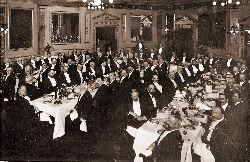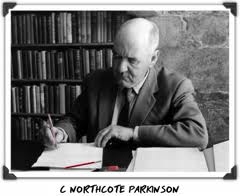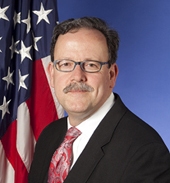 "From ghoulies and ghosties
"From ghoulies and ghosties
And long-leggedy beasties
And things that go bump in the night,
Good Lord, deliver us!"
- Scottish Saying
John Keene paced his Chillcothe prison cell late at night. It was a habit he had developed over the last couple of years after he had been incarcerated for his latest check kiting scheme. He found pacing helped clear his head and allowed him to think. It troubled him that he was getting close to 30 years of age and had never done anything with his life. He had a long arrest record which included many petty crimes. Even in crime, he never really hit the big time and this frustrated him greatly. In terms of education, he never went beyond high school as he couldn't afford college and the military wouldn't take him due to his arrest record. For the last ten years he had simply drifted from one scam to another until his luck finally ran out in Ohio.
Despite his run-ins with the law, he still had a huge ego and thought that holding a regular job was for chumps, but as he paced his cell he realized what he was doing wasn't hacking it either. Instead of these smalltime scams, it was time to go after something bigger, such as embezzlement. If he could just get hired by a bank or insurance company, or perhaps a large department store, he could work his way into a position to tap into their accounts. But to do so, he realized he needed to clean up his image. Getting a new identity wouldn't be a problem, but getting an endorsement would be something else. He needed something respectable, something that was well known and beyond reproach. Keene then had an epiphany, "I know, I'll join the Masons!" he said to himself. He had known of the Masons since his youth as the pillars of the community. They were somewhat secretive but everyone knew them to be a tight-knit group with impeccable credentials. If he could just get into the Masons, this might be just the type of reference he needed to get into an established company.
If all went well, Keene was scheduled to be paroled in a few months. He made good use of his remaining time in the prison library where he studied everything he could find regarding the Masons. He learned about their membership application process and felt he could easily deceive the Masons through his personality and rehearsed answers to their questions. As part of his investigation he discovered that the Masons were desperate for members, and this might be the opening he was looking for. If he could find a small Lodge that was struggling for members, perhaps he could bypass a lot of the Masonic red tape to join. He then scanned various geographical locations until he zeroed in on Columbus which was home to many banks, insurance companies, and other large companies.
Keene's parole hearing finally came up in January and thanks to his good behavior, he was granted a parole. He was asked where he would be settling and he told them of his intention of finding work in Columbus. He was then assigned a parole officer he would have to regularly report to. Upon his release he made his way to Columbus and found work at a fast food franchise.
During his free time he went about the process of getting a new identity. He began by visiting a local cemetery where he found a grave of a young boy who was born around the same time as himself, the name was Michael J. Burton. Next, he secured a copy of Burton's birth certificate and, using it, applied for a social security card. Once he had the card, he next applied for a driver's license, then finally a U.S. Passport. The whole process took just a few short months. Next came a checking account, gasoline cards, and finally credit cards. The prison system had taught him well.
By May, Keene/Burton was ready to make his application with the Masons. He had studied the Masonic Lodges around Columbus closely and found one that was remarkably small (less than 100 members) and was on the verge of closing its doors due to dwindling finances. Keene contacted the Secretary of Buckeye Lodge No. 1557 who was delighted to hear from him and promptly mailed him a petition to join the Lodge. Using his new identity, Keene falsified the petition and returned it to the secretary along with payment of the initiation fees in full.
During Buckeye Lodge's Stated Communications, the Secretary surprised the Craft (only six were in attendance) by reading the petition. This delighted the Lodge as they had not received a new member application in two years. In particular, this pleased the Master, Gordon Shields, who wanted to waste no time getting some new blood into the Lodge. The petition was accepted and followed its usual course, except the Lodge glossed over the investigation as the Master couldn't find anyone to perform the task. Instead, the Master invited Keene to the Lodge and talked to him about what it meant to be a Mason. He found "Burton" to be an honest, clean-cut and forthright individual. Little did he understand his true background, particularly since he didn't check his references.
Keene's petition was finally balloted upon one month later as scheduled where it was found clear in the South, West, and East. Bro. DB Hunter happened to attend the meeting that night and was pleasantly surprised by the petition. Hunter was the Lodge's Instructor and was pleased to hear he would once again be asked to teach a Brother his catechism.
Shortly after the ballot, the Master scheduled Burton's Entered Apprentice degree for mid-June which was performed accordingly. Keene then began to meet with Hunter on a regular basis to learn the EA catechism. At first, he was surprised by the amount of memorization work required, but finally learned the rhythm of the work and quickly mastered it, perhaps too quickly. During catechism meetings, Hunter liked to develop a rapport with the new Brother to see what kind of Mason he would be. Although Keene would volunteer some information, Hunter found him to be somewhat evasive on his past. Instead, Keene wanted to accelerate the practices. Hunter liked Keene's enthusiasm, but found it a bit disconcerting that he wouldn't volunteer information about himself.
Keene learned the EA work and was able to return it in Lodge during the month of August. Shortly thereafter, the Lodge conferred the Fellow Craft degree on Keene and, consequently, he continued his sessions with Hunter to learn the second degree. During one of the meetings, Keene proudly displayed a Masonic ring he had purchased. Hunter pointed out to him that it shouldn't be worn until he had been raised to Master Mason, but this did little to subdue his enthusiasm as he knew his training would soon be over and he could dump these "bumpkins" once and for all.
To Hunter, Burton was an enigma; on one hand he was very enthusiastic about the fraternity, but on the other there was a dark and evasive side of him which disturbed him. Consequently, DB contacted Shields to discuss Burton's background. In the process he discovered that the Lodge in its excitement of getting a new member had performed a superficial investigation of the candidate. Suspicious of what was going on, Hunter telephoned "Doc" Simpson, a Brother Mason who served in the law enforcement community and asked him to do a background check on a Michael J. Burton. The deputy told him he would do so but it would take a couple of weeks. Hunter agreed and continued with Keene's catechism practice while he waited for the results.
In an attempt to postpone the raising of Burton to Master Mason, Hunter stretched out the catechism training until he heard back from Simpson. Prolonging the training irritated Keene as he wanted to be raised and move along. Nevertheless, he mastered the work and successfully returned it back in Lodge in early October before Simpson had completed his investigation. There was now nothing to stop Keene from being raised to the sublime degree of Master Mason, or so he thought.
Shortly after Keene had completed his Fellow Craft training, Simpson called Hunter and reported he couldn't find any criminal activity associated with Michael J. Burton. There was just one problem though, Michael J. Burton died 25 years ago. This concerned both Hunter and Simpson greatly as they realized they either had someone with a false identity or someone who had changed his name somewhere. Simpson told Hunter to somehow obtain Burton's fingerprints or a sample of DNA. The DNA would be hard to get as it would inevitably tip off Burton, but the fingerprints would be easier to obtain since he always drank a glass of water during the catechism practice. Fortunately, Hunter was able to obtain a glass with Burton's prints on it and gave it to Simpson to analyze.
After a few days Simpson met Hunter at the Lodge and reviewed the results. Lo and behold, the fingerprint tests resulted in the criminal dossier of John M. Keene, complete with mug shots. Hunter verified that it was indeed Burton. He then picked up the phone and called the Master and asked him to meet the two at the Lodge.
When Shields arrived, Hunter and Simpson explained to him what they had found. Shields was aghast that someone with such a background could have penetrated the Masons and was embarrassed by his own investigation. But what to do? Simpson couldn't find anything where Keene may have misled someone about his identity, only the Masons. Surely they couldn't make Keene a Master Mason based on what they now knew, nor should they allow him to continue the charade to some other unsuspecting person or institution.
"I have an idea," said Hunter.
The Worshipful Master scheduled Keene's raising for the evening of October 31st, Halloween. Keene was delighted. Not only would he finally learn the secrets of the Masons, but he had also been able to secure an interview for a clerk's job in a downtown bank during the first week of November. The timing was right for Keene to move into the next stage of his plan.
The Master explained to "Burton" that since he was the first person to join the Lodge in a couple of years, this was going to be a special degree and would be held outdoors. Keene had heard of such degrees by the Masons and, as such, the honor fed his ego. He was told to arrive at a remote field north of the city precisely at 7:30pm, not a minute sooner or later. Keene knew the spot and became fascinated by the intrigue.
Ohio had experienced an Indian Summer with warm temperatures during the day and cool evenings. On Halloween night it was a balmy 72 degrees with a cloudy overcast as Keene arrived at the field precisely at 7:30pm. As Keene got out of his car he was approached by Hunter who welcomed him warmly. He assured him that he had nothing to fear and that he would learn a lot from the degree. Hunter then asked him to change out of his clothes and don a set of plain blue pajamas and sandals.
About fifty feet away Keene saw the members of the Lodge standing in a single line facing east. Each held a torch in their left hand, their right hand covering their heart, and wearing a Masonic apron. Not a word was spoken by the group and despite Hunter's assurances, Keene grew a bit apprehensive. Hunter presented Keene directly in front of the group.
"My Brothers I hereby present Michael J. Burton to be raised to the ancient and honorable degree of Master Mason. He has made suitable proficiency in his preceding degrees and now seeks the light of Masonry." After which Hunter left Keene's side and rejoined his Lodge Brothers in the line.
The Worshipful Master stepped forward from the line and faced Keene. He then called upon the Chaplain to lead the group in prayer.
Following prayer, Shields turned to Keene and said, "You are now standing before Brothers who have traveled this way before you. I am afraid you have a rough and rugged road before you to seek the light of Masonry. Walk softly, listen carefully, memorize the words, and learn from their wisdom. You will now turn 180 degrees to face the East," and the Master helped turn him in the proper direction.
"Before you is the road leading to your destiny and light. You will now walk upon the level until you meet with a wayfaring man who will grant you your final instructions. Listen well to his counsel as your future depends on it."
Keene slowly walked away from the group as instructed. It was pitch black at night, and the only light he saw was from the torches held by the Masons who stood motionless behind him and a small dot of light ahead of him. He realized he was in a meadow as he didn't encounter any trees. Perhaps it was a cow pasture. He chose his steps carefully as he didn't want to step in anything or lose his sense of direction. From time to time he would look back to see the line of Masons standing far behind him with their torches. As he advanced he could see the dot of light grow larger but in front of it appeared a body of water, a small lake of some kind.
As Keene came up to the edge of the water an old man approached him clothed in a strange costume holding a six foot staff. To Keen, the man appeared to be dressed as some sort of ancient mariner which he had seen in history books from biblical times.
The stranger spoke, "Brother, what do you seek?"
"The light of Masonry," Keene said hesitantly.
"Then you have traveled the right path for I am to be your guide. Across the waters you behold the light of Freemasonry," and he pointed to the other side of the lake where Keene could now see the dot of light was a bonfire of good size.
"But as we enter the world penniless and naked, you must enter the Light likewise and be reborn. You will now be divested of your outward appearance and swim across the water as all who have come this way before you. Do you accept these terms?"
"I do," said Keene.
Removing his clothes in front of a strange man didn't bother Keene as he had done it plenty of times while in prison. As he removed his clothes he could still make out the line of lights behind him from the Masons. He then handed his pajamas, along with the sandals, to the man who put them into a bag for safekeeping. He now stood naked before the old man and felt a little shiver from the cool night air.
"Now before we do this," the old man said candidly, "Are you in good health and are you sure you can swim across the lake? Only the strongest men can become Masons."
Keene looked across the lake which he judged to be about 100 yards away.
"No problem," he said confidently.
"Here take a swig of this," the old man said as he handed him a flask containing whiskey, "You'll need it."
Keene was hesitant at first as he thought Masons practiced intemperance, but after some encouragement from the old man he took a deep drink of it.
"Go ahead, take another swig, it'll keep you warm in that cold water." And Keene did so.
"You will now cross the waters. Swim strongly, swim carefully, and beware of the serpents of the deep. When you arrive on the other side you will be met by your Brothers. As quick as you can, you must jump before the light and exclaim three times, 'God Almighty, show me the light.' Do you understand this? Repeat it." Keene did as he was told.
"Then may the Grand Architect of the Universe be with you. I bid you farewell," and he stepped aside to allow Keene to step into the lake to test the water. The lake was a bit chilly but Keene's body quickly acclimated to it.
Keene wasn't a strong swimmer but he competently began to swim across the lake. As he made his way, he thought to himself, "What in the hell am I doing out here on a Halloween night? I can't believe I'm doing this. Oh well, it will be worth it when I get that bank job. And what was with that weird old guy with the staff and his mumbo jumbo about 'beware of the serpents of the deep'? There better not be anything in here other than catfish and blue gills."
He swam slowly and methodically as it was still dark and he reached out to touch anything that might be in his way. As he neared the other bank he could see the bonfire more clearly but could only make out silhouettes of a few people sitting around the fire. He thought he would make the best of it and give them all a good show. After all, if those old geezers could do it, he could as well.
As he reached the other bank he pulled himself out of the lake and raced over to the bonfire and jumped in front of it and yelled three times, "God Almighty, show me the light."
Girl Scout Troop #132 looked up horrified. They had come out for their annual Halloween camp out at the county park but had not expected to see some drunk naked lunatic jumping around their campfire. Fortunately, the adult chaperones present were able to subdue Keene and covered him in blankets.
Deputies from the nearby Sheriff's office were summoned who arrested Keene for public intoxication, indecent exposure, and lewd conduct in the presence of minors. As he was being placed in the Sheriff's patrol car, Keene looked back across the pond to see the Masons and old man, all of which had conveniently disappeared.
Epilogue: The strangest things occur on All Hallows' Eve: membership records mysteriously disappear, Masonic rings and identity cards are lost, criminals are apprehended, parole officers are anonymously notified of indiscretions, and other things that go bump in the night. Boo!
Keep the Faith!
Note: All trademarks both marked and unmarked belong to their respective companies.
Tune into Tim's THE BRYCE IS RIGHT! podcast Mondays-Fridays, 11:30am (Eastern).
Copyright © 2007 by Tim Bryce. All rights reserved.
 I have always wondered about people who want to run for office. Even as a student in High School I never understood why someone wanted to be student body President since it was a frivolous position carrying little weight. If anything, it was indicative of a person's popularity and perhaps looked good on a college application. Other than that, it meant zilch. Over the years I have seen this same phenomenon played out in numerous volunteer organizations where people thrived on the adulation of the title of their office but accomplished nothing. They accepted the title more as a status symbol rather than to achieve anything. I also found these same people ruled with an iron fist whereby nothing happened without their personal stamp of approval regardless of the triviality of the task.
I have always wondered about people who want to run for office. Even as a student in High School I never understood why someone wanted to be student body President since it was a frivolous position carrying little weight. If anything, it was indicative of a person's popularity and perhaps looked good on a college application. Other than that, it meant zilch. Over the years I have seen this same phenomenon played out in numerous volunteer organizations where people thrived on the adulation of the title of their office but accomplished nothing. They accepted the title more as a status symbol rather than to achieve anything. I also found these same people ruled with an iron fist whereby nothing happened without their personal stamp of approval regardless of the triviality of the task. Tim Bryce is a writer and the Managing Director of M. Bryce & Associates (MBA) of Palm Harbor, Florida and has over 30 years of experience in the management consulting field. He can be reached at timb001@phmainstreet.com
Tim Bryce is a writer and the Managing Director of M. Bryce & Associates (MBA) of Palm Harbor, Florida and has over 30 years of experience in the management consulting field. He can be reached at timb001@phmainstreet.com I wore shorts to work the other day. Yea, I know, I'm the guy that says we should spruce up our image at work, but I did this to revolt against the rut I've gotten into in the morning (plus it was a Friday and I knew I wouldn't be running into anybody). Like a lot of guys, when I get up, I have a light breakfast, scan the newspaper, shave, shower, get dressed for the day, and drive to work. It is all very boring and repetitive and frankly, I think I finally blew a fuse.
I wore shorts to work the other day. Yea, I know, I'm the guy that says we should spruce up our image at work, but I did this to revolt against the rut I've gotten into in the morning (plus it was a Friday and I knew I wouldn't be running into anybody). Like a lot of guys, when I get up, I have a light breakfast, scan the newspaper, shave, shower, get dressed for the day, and drive to work. It is all very boring and repetitive and frankly, I think I finally blew a fuse. I don't think anyone likes what is commonly called "run-arounds" - you know, people who set up a bureaucratic process just to keep you busy and out of their way. There are other names for it, such as "chasing your tail," "the dance of the fairies," "bunco," etc. No doubt you are familiar with the expression, "They are giving him the run-around." Run-arounds ultimately represent a test of our patience, endurance, and determination to see something through to fruition.
I don't think anyone likes what is commonly called "run-arounds" - you know, people who set up a bureaucratic process just to keep you busy and out of their way. There are other names for it, such as "chasing your tail," "the dance of the fairies," "bunco," etc. No doubt you are familiar with the expression, "They are giving him the run-around." Run-arounds ultimately represent a test of our patience, endurance, and determination to see something through to fruition. Ever wonder why our computers typically last no more than three years? Many contend it is because of the fast pace of technological advancements. Maybe. But I tend to believe there is a little more to it than just that, namely "Parkinson's Law." For those of you who may have forgotten, "Parkinson's Law" was devised by C. Northcote Parkinson, noted British historian and author. His original book, "Parkinson's Law: The Pursuit of Progress," was introduced in 1958 and was a top-selling management book for a number of years (it is still sold today). The book was based on his experience with the British Civil Service. Among his key observation's was that "work expands so as to fill the time available for its completion." Basically, he suggests that people make work in order to rationalize their employment. Consequently, managers create bureaucracies and superfluous work to justify their existence, not because it is really needed.
Ever wonder why our computers typically last no more than three years? Many contend it is because of the fast pace of technological advancements. Maybe. But I tend to believe there is a little more to it than just that, namely "Parkinson's Law." For those of you who may have forgotten, "Parkinson's Law" was devised by C. Northcote Parkinson, noted British historian and author. His original book, "Parkinson's Law: The Pursuit of Progress," was introduced in 1958 and was a top-selling management book for a number of years (it is still sold today). The book was based on his experience with the British Civil Service. Among his key observation's was that "work expands so as to fill the time available for its completion." Basically, he suggests that people make work in order to rationalize their employment. Consequently, managers create bureaucracies and superfluous work to justify their existence, not because it is really needed. "From ghoulies and ghosties
"From ghoulies and ghosties I was at a restaurant for lunch recently and happened to sit next to a group of businessmen. By their conversation, it seemed to me they were a group of old friends who had known each other for a long time, perhaps since youth. Nonetheless, I couldn't help but overhear their table conversation most of which centered on the fragile state of the economy and how each was trying to cope with it.
I was at a restaurant for lunch recently and happened to sit next to a group of businessmen. By their conversation, it seemed to me they were a group of old friends who had known each other for a long time, perhaps since youth. Nonetheless, I couldn't help but overhear their table conversation most of which centered on the fragile state of the economy and how each was trying to cope with it. I wish I lived in Washington, DC. It must be very inexpensive to live there. I say this because I noticed our rate of inflation dropped over the summer from 1.24% to 1.15%. The rate is calculated using the current Consumer Price Index as published monthly by the U.S. Bureau of Labor Statistics. The index is "a measure of the average change over time in the prices paid by urban consumers for a market basket of consumer goods and services."
I wish I lived in Washington, DC. It must be very inexpensive to live there. I say this because I noticed our rate of inflation dropped over the summer from 1.24% to 1.15%. The rate is calculated using the current Consumer Price Index as published monthly by the U.S. Bureau of Labor Statistics. The index is "a measure of the average change over time in the prices paid by urban consumers for a market basket of consumer goods and services." We now live and work in a mobile society. It is not uncommon for people to be out of the office either visiting clients and vendors, traveling, or working from home. Unlike days of old where the whereabouts of workers were generally known by their managers, usually at their assigned desk or workstation, today's workplace is more likely to offer temporary facilities to accommodate an in-transit workforce which is sometimes referred to as an "agile" workplace (a label I find particularly annoying). Such mobility complicates the life of managers charged with completing assignments on time and within budget. Today, the manager worries about such things as:
We now live and work in a mobile society. It is not uncommon for people to be out of the office either visiting clients and vendors, traveling, or working from home. Unlike days of old where the whereabouts of workers were generally known by their managers, usually at their assigned desk or workstation, today's workplace is more likely to offer temporary facilities to accommodate an in-transit workforce which is sometimes referred to as an "agile" workplace (a label I find particularly annoying). Such mobility complicates the life of managers charged with completing assignments on time and within budget. Today, the manager worries about such things as: Whether you love her or hate her, you have to hand it to the promoters of pop music icon Lady Gaga who seems to have exploded on the music scene in the last year or so. Her flamboyant dress, presentation and lifestyle has made her the darling of the music world, an envy of the gay community, and an unsurpassed cash machine that can make anyone's head spin. The press went wild for her avant-garde "meat dress" at a recent music awards program. Her celebrity is such that she placed fourth in Forbes magazine's list of the 100 Most Powerful and Influential celebrities in the world (June 2010), as well as Time magazine's 100 Most Influential people.
Whether you love her or hate her, you have to hand it to the promoters of pop music icon Lady Gaga who seems to have exploded on the music scene in the last year or so. Her flamboyant dress, presentation and lifestyle has made her the darling of the music world, an envy of the gay community, and an unsurpassed cash machine that can make anyone's head spin. The press went wild for her avant-garde "meat dress" at a recent music awards program. Her celebrity is such that she placed fourth in Forbes magazine's list of the 100 Most Powerful and Influential celebrities in the world (June 2010), as well as Time magazine's 100 Most Influential people.  It seems I've been attending a lot of funerals lately. I've noticed they seem to come in spurts. For some reason, the fourth quarter seems to be the busiest season for me. Maybe there is something in the water after all. I don't wish to make lite of funerals as it is an uncomfortable subject for people to discuss and something we don't really like to attend, but I've noticed some subtle changes occurring in funerals recently.
It seems I've been attending a lot of funerals lately. I've noticed they seem to come in spurts. For some reason, the fourth quarter seems to be the busiest season for me. Maybe there is something in the water after all. I don't wish to make lite of funerals as it is an uncomfortable subject for people to discuss and something we don't really like to attend, but I've noticed some subtle changes occurring in funerals recently. As much as we are accustomed today to presidents serving two consecutive terms, this was not always so. In fact, prior to FDR only ten of the first 31 presidents were elected to second terms, that's just 33%. In the 1800's there were eight single term presidents between Jackson and Lincoln, and seven single term presidents between Grant and Teddy Roosevelt. Then along came FDR in the midst of the calamity of the Great Depression and World War II who was elected to an unprecedented four terms thereby ushering in the concept of the career politician. This of course was negated by the 22nd Amendment which now permits only two consecutive presidential terms. Since it was enacted, five out of eleven presidents were elected to consecutive terms (45%).
As much as we are accustomed today to presidents serving two consecutive terms, this was not always so. In fact, prior to FDR only ten of the first 31 presidents were elected to second terms, that's just 33%. In the 1800's there were eight single term presidents between Jackson and Lincoln, and seven single term presidents between Grant and Teddy Roosevelt. Then along came FDR in the midst of the calamity of the Great Depression and World War II who was elected to an unprecedented four terms thereby ushering in the concept of the career politician. This of course was negated by the 22nd Amendment which now permits only two consecutive presidential terms. Since it was enacted, five out of eleven presidents were elected to consecutive terms (45%). Starting with the MIS movement (Management Information Systems) of the 1960's, companies invented major enterprise-wide systems that handled everything from manufacturing to customer service, to accounting and beyond. These were mammoth systems that were designed and built by systems analysts working in conjunction with programmers. The systems were not exactly glamorous by today's technological standards, but they worked. Over the next two decades the stature of programmers rapidly grew and system analysts declined. So much so, by the 1990's the analysts were almost extinct. This greatly affected the ability of companies to build and maintain major systems as evidenced by the numerous development disasters during that period. It seemed every field was affected, and we read about major system snafus in banking, transportation, insurance, health care, manufacturing, etc.
Starting with the MIS movement (Management Information Systems) of the 1960's, companies invented major enterprise-wide systems that handled everything from manufacturing to customer service, to accounting and beyond. These were mammoth systems that were designed and built by systems analysts working in conjunction with programmers. The systems were not exactly glamorous by today's technological standards, but they worked. Over the next two decades the stature of programmers rapidly grew and system analysts declined. So much so, by the 1990's the analysts were almost extinct. This greatly affected the ability of companies to build and maintain major systems as evidenced by the numerous development disasters during that period. It seemed every field was affected, and we read about major system snafus in banking, transportation, insurance, health care, manufacturing, etc. In the United States, small businesses account for about half of the Gross Domestic Product (GDP) and more than half of the country's employment. As we all know, the GDP recently dropped to a paltry 1.6% and, as of this writing, the country's unemployment rate is up to 9.6%. Recognizing the role small businesses play in the nation's economy, our politicians are slowly trying to figure out what can be done to help them out. Actually, it doesn't take a genius to figure out what is wrong or what to do.
In the United States, small businesses account for about half of the Gross Domestic Product (GDP) and more than half of the country's employment. As we all know, the GDP recently dropped to a paltry 1.6% and, as of this writing, the country's unemployment rate is up to 9.6%. Recognizing the role small businesses play in the nation's economy, our politicians are slowly trying to figure out what can be done to help them out. Actually, it doesn't take a genius to figure out what is wrong or what to do. Shortly after the Obama Health Insurance Bill (aka "Obamacare") passed the Congress last March 21st, Democratic spin doctors crowed over its passage and claimed it would be an asset to incumbent Democrats in their bid for reelection in November. This, of course, never happened. Here we are just three weeks away from the mid-term elections on November 2nd and I have yet to hear anyone triumphantly gloat over the passage of Obamacare. Maybe this is because nobody has ever taken the time to read the massive document cover-to-cover, prior to voting for its passage (or afterwards for that matter). All of the signers of the bill (see list below) have basically kept quiet and hoped nobody would notice them, thereby allowing them to quietly slip back into office. The bill is being treated like the plague, Democratic politicians running for re-election refuse to make the slightest mention of it on their web sites.
Shortly after the Obama Health Insurance Bill (aka "Obamacare") passed the Congress last March 21st, Democratic spin doctors crowed over its passage and claimed it would be an asset to incumbent Democrats in their bid for reelection in November. This, of course, never happened. Here we are just three weeks away from the mid-term elections on November 2nd and I have yet to hear anyone triumphantly gloat over the passage of Obamacare. Maybe this is because nobody has ever taken the time to read the massive document cover-to-cover, prior to voting for its passage (or afterwards for that matter). All of the signers of the bill (see list below) have basically kept quiet and hoped nobody would notice them, thereby allowing them to quietly slip back into office. The bill is being treated like the plague, Democratic politicians running for re-election refuse to make the slightest mention of it on their web sites.